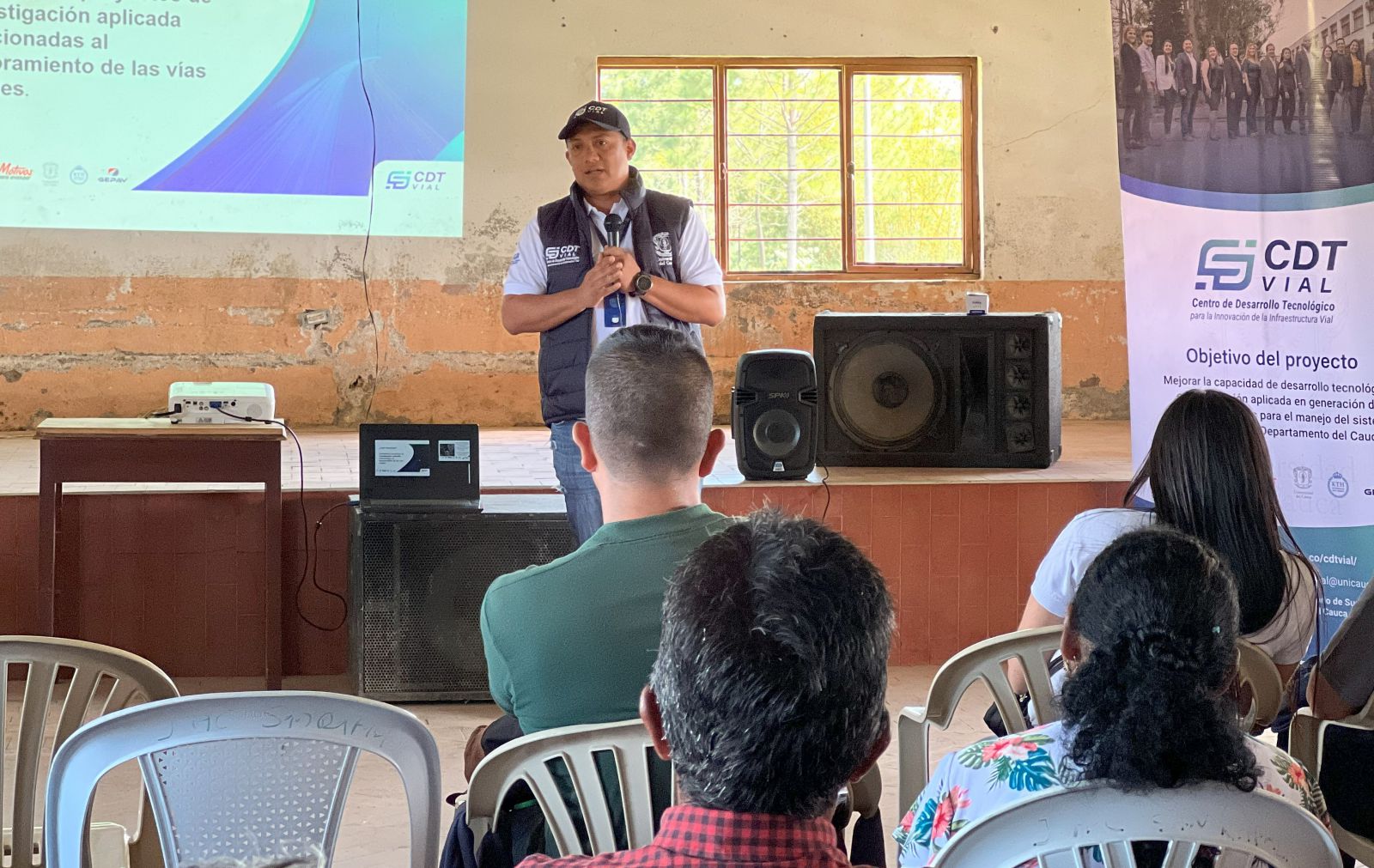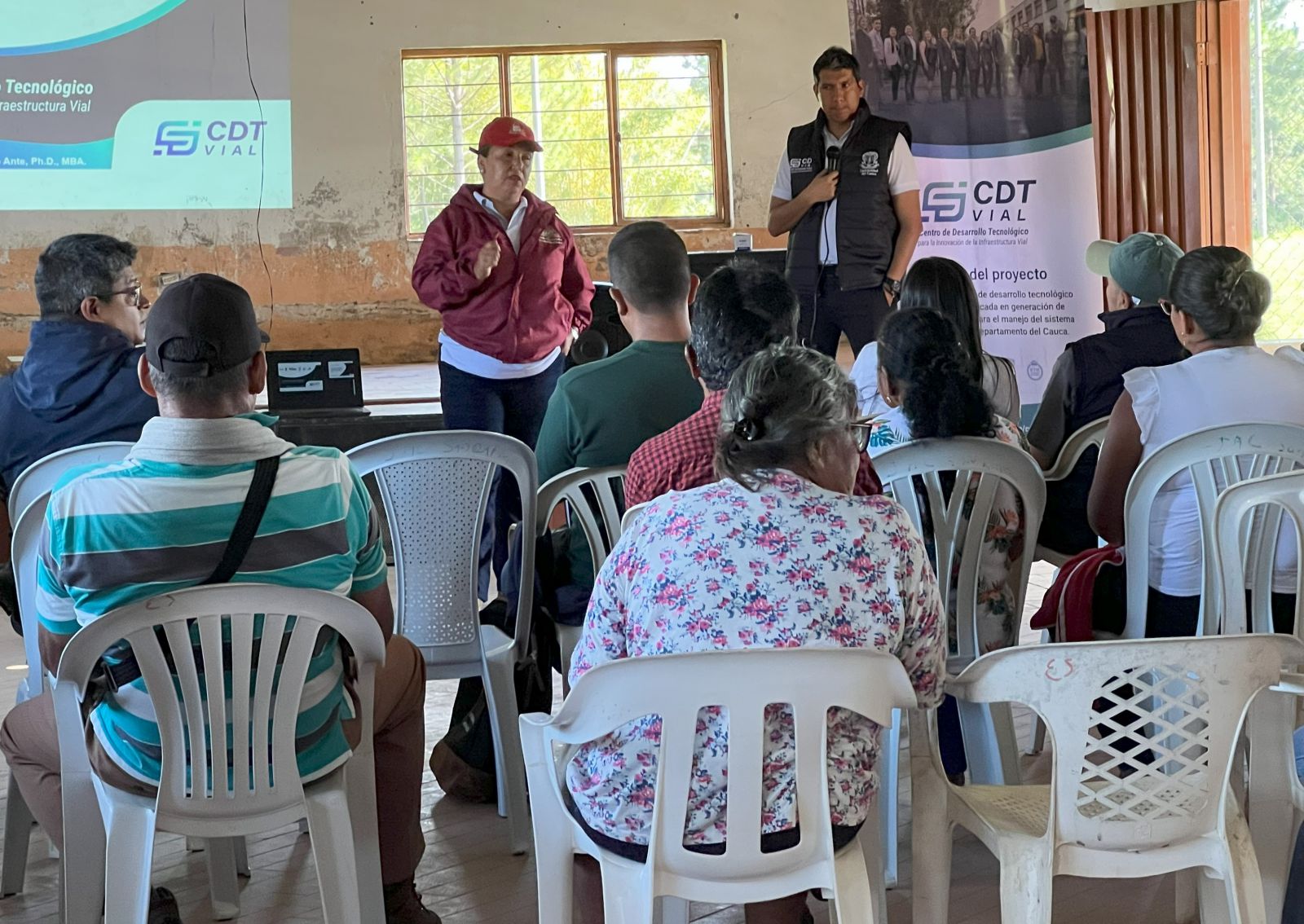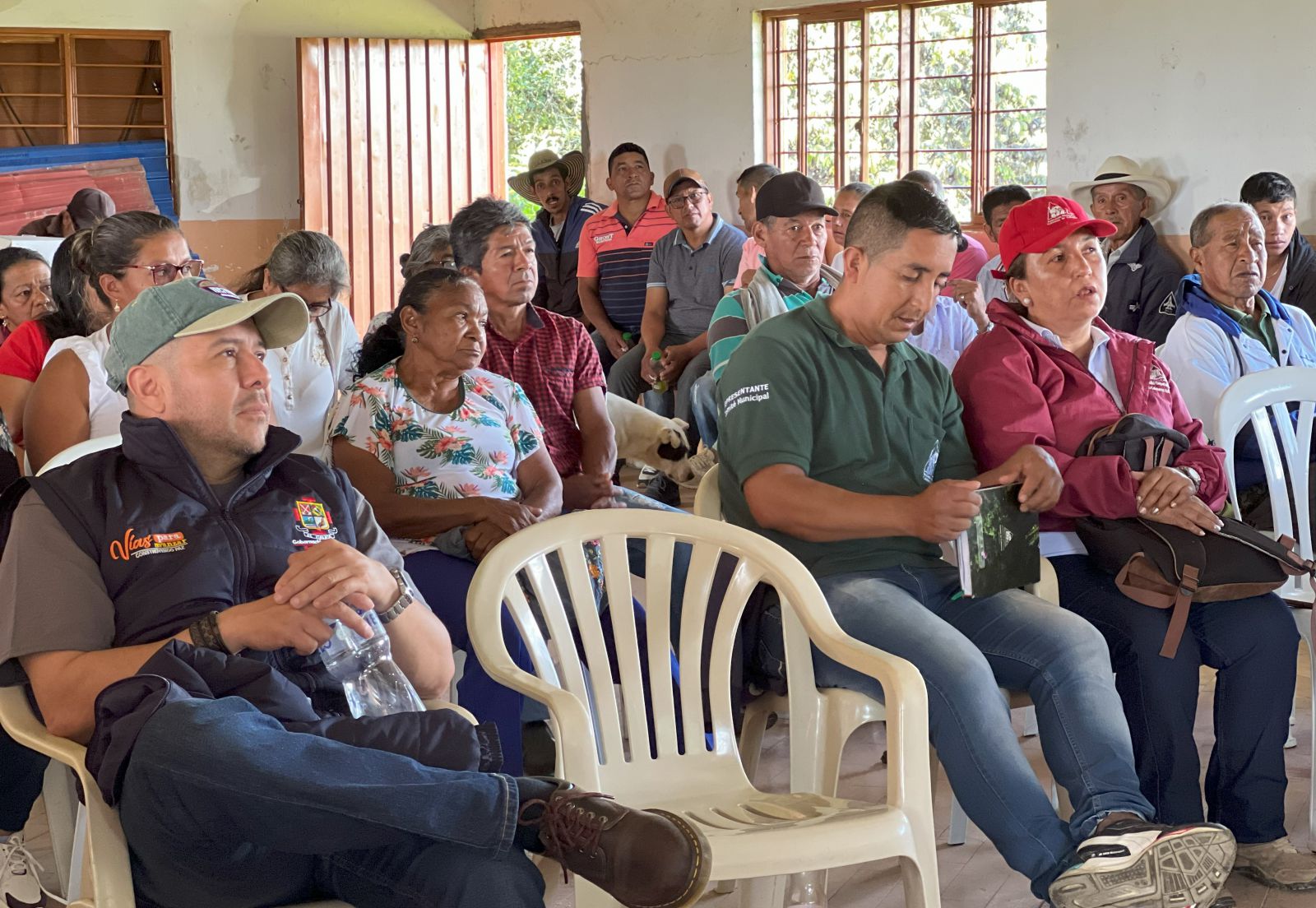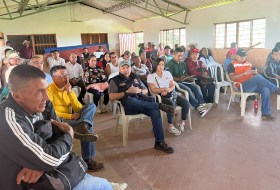News
The CDT Vial Project presents the construction of a test section in the rural area of Popayán
The Center for Technological Development for Road Infrastructure Innovation (CDT Vial), led by Professor Rafael Obando Ante, met with communities from the San Rafael, La Meseta, and La Tetilla villages to share the construction plan for a 1 km long test section.
Professor Rafael Obando Ante, affiliated with the Department of Geotechnics - Faculty of Civil Engineering at the University of Cauca and Director of the CDT Vial project, along with his technical team, held a community dialogue session on December 4th in the San Rafael village, a rural area of Popayán. During this interaction, the plan for constructing a 1 km long test section, which will be executed between the La Tetilla and La Meseta road, was presented.
The purpose of this experimental section is to evaluate both the materials and innovative techniques that will be implemented for the improvement of tertiary roads in the department of Cauca. The initiative aims to become a pilot project that could potentially be replicated in different locations throughout the Department.

Provided photo
The presentation involved the active participation of representatives from various entities, including the supervisory firm COLPROF, representatives from the Popayán Mayor's Office, the Cauca Governor's Office, the National Federation of Coffee Growers, as well as presidents and community leaders from the San Rafael, La Meseta, and La Tetilla villages.

Provided photo
This meeting stood out as a valuable exchange where concerns were addressed and a shared commitment to regional progress and development was strengthened, bridging Science, Technology, and Innovation with the community.
It's worth noting that the Center for Technological Development for Road Infrastructure Innovation (CDT Vial) was established in 2018 with the aim of enhancing road infrastructure innovation processes in Cauca. This is achieved through the transformation of specialized technical knowledge into technological processes that reduce costs through the use of new materials and technologies. These innovations aim to have a positive impact on the environment and also reduce the time required for project execution, ultimately benefiting the economic and social well-being of the region's population.

The project is executed by the University of Cauca with the main partner being the KTH Royal Institute of Technology from Sweden. They contribute technical and financial resources to strengthen the center through the triple helix model, which involves dynamic, joint, and committed participation among government, industry, and academia.
For further information:
Faculty of Civil Engineering
Email: d-civil@unicauca.edu.co


